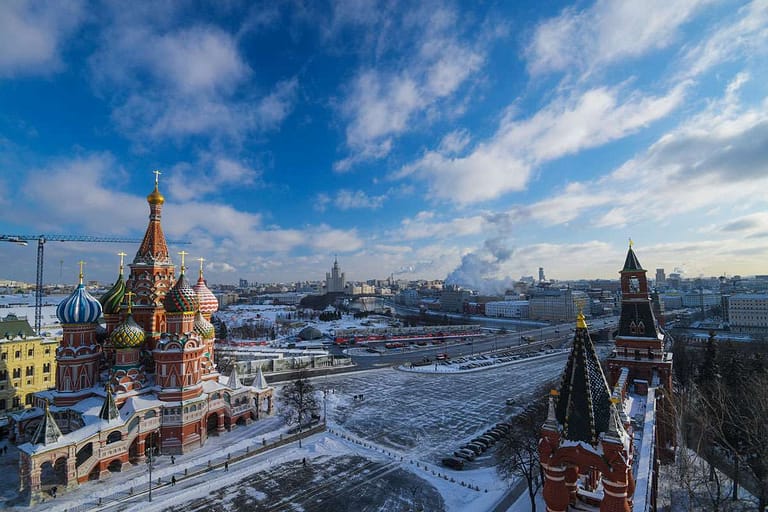The Climate of Moscow






Moscow is characterized by a temperate continental climate with rather mild winters and humid warm summers. Despite this, Moscow is among the capitals with the most severe climate. Excessive heat and sharp frosts practically do not happen in Moscow, but in recent years there has been more deviation from the norm. During the year, 550-650mm of precipitation mainly falls.
Usually frosts in Moscow begin at the end of September and end in mid-May. Winter with persistent frosts begins in the 20th of November and ends on March 10th. Snow cover is usually established along with persistent frosts, and completely disappears by the 10th of April. By the end of winter, the height of the snow cover in Moscow is about 35 centimeters.
The coldest month of the year is January – the temperature in this month drops to -10°C. The lowest recorded temperature was -45°C. In the other two months short thaws are often observed.
The hottest month of the year is July, when the thermometer rises to +20°C. The absolute record was set in the summer of 2010, when the temperature reached +38°C. The weather in early summer is very unstable, with frequent thunderstorms and sudden temperature changes.
The air regime of Moscow has its own characteristics: air flows, as it were, flock to the central part of the city, bringing with it precipitation or heat. Experienced tourists, say that the best dates for the visit are the following:
- Summer months – for example, July. An ideal time for walking through the streets and parks of Moscow, when you can enjoy all the activities and outdoor events.

